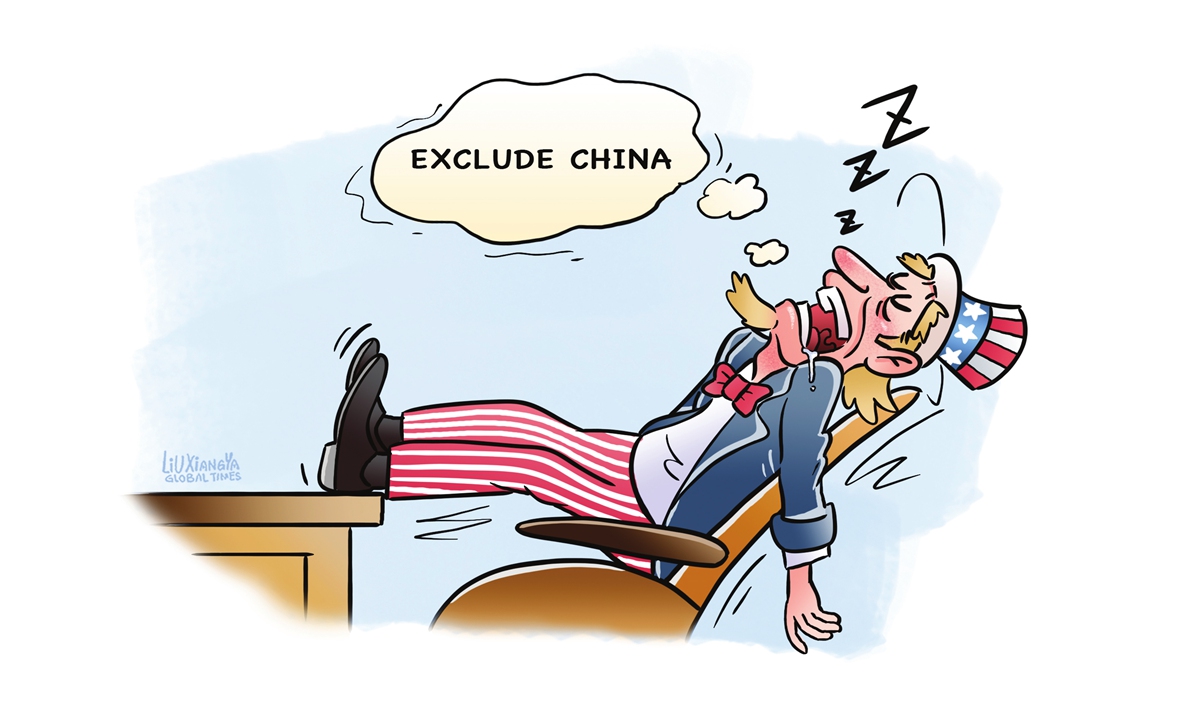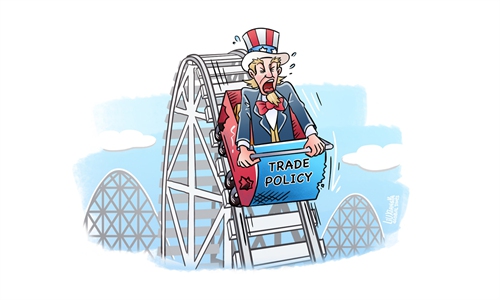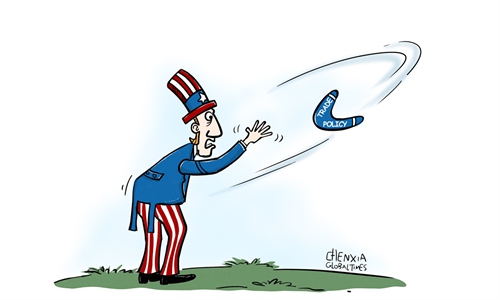
Illustration: Liu Xiangya/Global Times
Does the US enjoy absolute power that enables the country to exclude China from the global financial system? It certainly does not. American politicians who try to use the financial influence of the US as leverage to intervene in China's domestic affairs should wake up from their daydreaming.
The Chinese version of VOA reported on Tuesday that Frank Lucas, chairman of the House Science, Space and Technology Committee, believes the US will use its financial influence to prevent the Chinese mainland from reunifying the island of Taiwan by force, and that Washington enjoys options that include isolating China from the global financial system.
"All necessary steps" can be taken by the US to exclude China's representatives from the activities of specified international organizations, including the Group of 20, the Financial Stability Board and the Basel Committee on Banking Supervision, according to an act proposed by Lucas.
He may not have realized how much danger the act really poses to the US and the global financial system. If the US overestimates its abilities, its moves will backfire and even destroy its financial system.
The Taiwan question is purely China's internal affair that brooks no external interference. China's position on the Taiwan question is clear and consistent. There is no need to repeat. So, let's temporarily put aside the Taiwan question and discuss from an economic perspective whether the US is able to exclude China from the global financial system.
First, the financial system and the real economy are inseparable in nature. China is the world's biggest trading nation. If the US excludes China from the global financial system - of which trade settlements are a critical component - the world's trade system will be brought to paralysis, which the US and even the world economy cannot afford.
In the worst-case scenario, the global finance and trade systems will collapse. In this process, every country in the system will suffer a loss. The US will meet strong condemnation from the international community. Its financial hegemony will also collapse, as its hegemony is built on the existing financial system.
Second, the US is unable to control the entire international financial system. After the US announced unilateral sanctions against Russia, it seems there needs to be more focus on advancing the diversification of the global financial system. Many have realized that back-up plans are needed to ensure the strategic financial safety of a country, in a bid to enable cross-border financial transactions in the absence of the US-centered financial system.
Although there is no need to deny that the US dollar will remain the most frequently used currency, a global trend toward de-dollarization has begun. It offers a window from which to observe the diversification of the global financial system.
Lucas' remarks and the act he proposed will accelerate the diversification, because they make people realize how the US will weaponize its financial hegemony as a bargaining chip in geopolitical games. This will be the death knell for US financial hegemony.
Third, China does not want a financial war with the US, but the government will not sit idly by if China's economy is hurt. China is the second-largest foreign holder of US government bonds. If unfair action is taken by the US, China has various tools to use as countermeasures. A financial war against China is likely to trigger a tit-for-tat reaction from Beijing so it would inflict the same damage on the US economy as a financial war might do on the Chinese economy.
We strongly hope and believe that China and the US won't reach that point. But discussions about a financial war will help American politicians avoid having daydreams about isolating China from the global financial system. The US and other external forces cannot interfere in China's undertaking of national reunification. If American politicians fail to understand this, their arrogance and ignorance will have dangerous consequences, especially for the US economy.
The author is a reporter with the Global Times. bizopinion@globaltimes.com.cn



